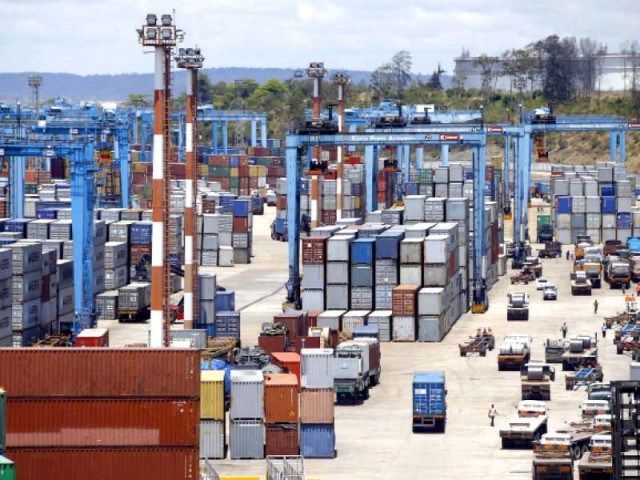Shaukat Tarin suspends EDF surcharge collection
Calls for swift release of exporters’ funds under DLTL and TUF schemes

Federal Minister for Finance Shaukat Tarin has issued directives to the authorities concerned to suspend the collection of Export Development Fund (EDF) surcharge from exporters until the accumulated amount with the government is utilised.
The move came after the exporters demanded a halt to the collection of EDF surcharge on Thursday.
At a virtual meeting held to discuss the budget for 2021-22 with Tarin, the exporters urged the government to immediately suspend EDF surcharge collection until the unutilised amount was disbursed.
“After we made the demand, the finance minister directed the officers concerned in the middle of the meeting to suspend the collection of funds for some time,” Pakistan Hosiery Manufacturers and Exporters Association Chief Coordinator Jawed Bilwani told The Express Tribune.
“At present, the government has approximately Rs58 billion in its accounts, which was collected as the EDF surcharge.”
During the meeting, Tarin also highlighted that billions of rupees of exporters held by the government under the Duty Drawback of Local Taxes and Levies (DLTL) claims and the Technology Upgradation Fund (TUF) were pending release, said a statement.
He called for the swift release of funds under the DLTL and TUF schemes and sought the continuation of the two schemes for the next five years.
Read more: Economy doing well but political stability missing
He announced that with effect from July 1, 2021, no notices would be issued by the Federal Board of Revenue (FBR) to taxpayers and they would be able to carry out self-assessment.
“In addition, only 4% to 5% of cases will be sent for audit, which will not be done by the FBR, but by a third party,” he said. “If any wrongdoing was found in the audit, it will result in initiation of investigation and punitive action.”
He revealed that the government was focusing on rationalising the turnover tax as it varied in numerous cases.
The minister agreed that when 3% penalty was being charged in case of unregistered persons, the CNIC condition should not be applicable.
He announced that a call centre would be established at the FBR to register complaints, which would be reviewed by the minister himself.
Export fund
A flat rate of 0.25% was deducted from the export proceeds of traders under the head of export development surcharge for distribution among various associations for the development of export sector, Bilwani said.
The government collects around Rs9 billion worth of surcharge every year and releases merely Rs1.5-2 billion.
“EDF is utilised for some other purposes and at times it is distributed to the sectors which have performed poorly on the export front,” he said.
Bilwani suggested that sector-wise record of EDF collection should be kept and it should be used to disburse the money to each segment. “This way, each sector will receive funds equal to its own contribution,” he said.
“The ceiling of parametric refund-to-export ratio should be increased for small and medium-sized exporters from the current 12% of export value to 15% for processing sales tax refunds of commercial exporters,” he said.
He proposed 14% refund-to-export ratio for small-sized exporters and 13% for medium-sized exporters.
“Following the announcement of concessionary tariff for export-oriented sectors, Prime Minister Imran Khan assured them that electricity and gas rates would remain unchanged at 7.5 cents per kWh and $6.5 per mmbtu respectively for the next three years,” said Bilwani.
“However, the government increased electricity and gas tariffs after one year.”
Responding to the suggestions, Tarin called on FBR members and officials of the Ministry of Finance to release all pending funds against DLTL claims and also look into the refund-to-export ratio for the SMEs.











1724319076-0/Untitled-design-(5)1724319076-0-208x130.webp)






COMMENTS
Comments are moderated and generally will be posted if they are on-topic and not abusive.
For more information, please see our Comments FAQ